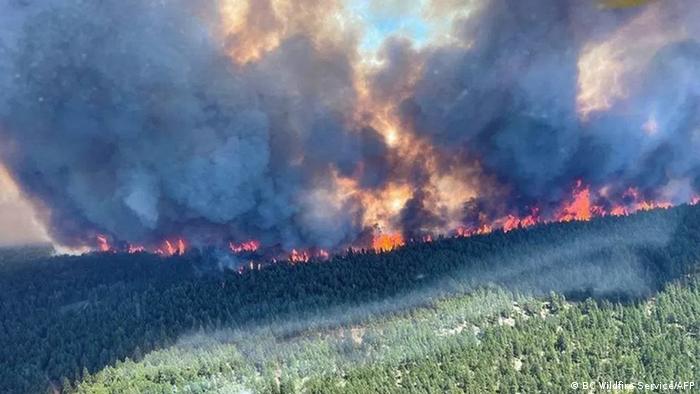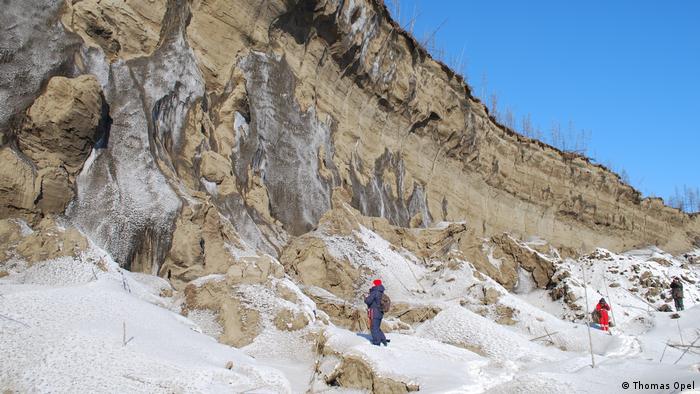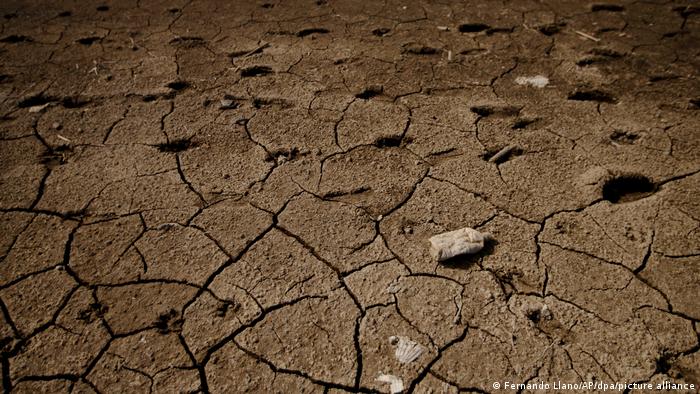According to a World Meteorological Organization (WMO) report in Geneva, last year was one of the seven warmest years since weather records began. Higher temperatures came in 2021, although the year was characterized by La Nia. This weather phenomenon, which occurs every few years, lowers the global average temperature because the upper water layers of the tropical eastern Pacific are unusually cold.
WMO Secretary-General Petrie Talas said 2021 will be remembered for record temperatures near 50 degrees in Canada, extraordinary rains, deadly flooding in Asia and Europe, and droughts in parts of Africa and South America. Last summer heat levels in Canada will be comparable to those in the Algerian Sahara. According to the Secretary-General, the effects of climate change and meteorological risks have had a tangible and devastating impact on every continent.
A heat wave in Canada triggered many wildfires in June 2021
Glasgow climate target not enough
The global mean temperature in 2021 was about 1.11 degrees above the 1850-1900 level. The previous record year was 2016, about 1.2 degrees above pre-industrial levels, followed closely by 2019 and 2020. The WMO emphasizes that the gap between individual years is sometimes so small that an exact sequence can hardly be determined.
However, temperature is only one indicator of many for climate change, Talas added. In addition, there are the concentration of greenhouse gases, the heat content and pH values of the oceans, mean sea level and glacial volume, and polar ice.
In the Glasgow Climate Agreement in November, the world’s countries reaffirmed their intention to curb global warming to 1.5 degrees above pre-industrial levels. However, so far, climate protection measures are not enough.
The WMO uses data from six major institutions for data on the hottest years. These include the US climate agency NOAA and the European Union’s Copernicus Climate Change Service. NOAA named 2021 the sixth warmest year ever.
-
Hotspots around the world: where climate change is leading to record heat
Lytton, Canada: fires and extreme temperatures
Lytton measured about 50 °C on 2 July – a heat record for this cold region in western Canada. Soon after, the village of 250 residents completely burned down. The heat domes in North America are being increased by global warming. Because the jet stream, the high altitude winds in the atmosphere, is slowing due to global warming, such weather conditions sometimes last for weeks.
-
Hotspots around the world: where climate change is leading to record heat
Kevo, Finland: heat accumulation in northern Europe
Lapland has not been so hot since July 1914: 33.6 °C was measured in northern Finland. Temperatures were 10 to 15 degrees above normal in other parts of Scandinavia as well. Meteorologists say that the extreme temperatures in northern Europe are directly related to the accumulation of heat in North America.
-
Hotspots around the world: where climate change is leading to record heat
New Delhi, India: Heat deaths and erratic monsoon
It was 43.1 degrees Celsius in early July in India’s capital New Delhi – the hottest day in nine years. The onset of monsoon has been delayed by about a week. At least 6,500 people have died of heat in India since 2010.
-
Hotspots around the world: where climate change is leading to record heat
Nizhnya profession, Russia: permafrost released methane
Siberia will also face heat in 2021. North of the Arctic Circle, over 30 °C were measured there in May. This made Siberia warmer than many parts of Europe. Drought and high temperatures are causing widespread fires in dense forests in the north of Russia – and the melting of permafrost. If this happens, additional amounts of CO2 and methane are released.
-
Hotspots around the world: where climate change is leading to record heat
New Zealand: very hot winter
In the Southern Hemisphere, which is currently actually winter, in Hastings, New Zealand, 22 °C was recently measured. According to the National Weather Administration (NIWA), this made June 2021 the warmest in New Zealand in 110 years. The average temperature has increased by 2 °C. Winters that are too hot damage agriculture and ski areas lack snow.
-
Hotspots around the world: where climate change is leading to record heat
Mexicali, Mexico: Dramatic Drought
51.4 °C – a new record even for sunny Mexico: the hottest temperature ever recorded in June. Mexico is currently going through its worst drought in 30 years. Baja California, in the west of the country, where the Colorado River has partially dried up, is particularly affected. Water levels in water bodies near Mexico City are also falling.
-
Hotspots around the world: where climate change is leading to record heat
Ghadames, Libya: Desert heat in North Africa
It is also particularly hot in the Arabian Peninsula and North Africa this year. The Sahara recorded a temperature of over 50 degrees in June. According to the National Meteorological Center, the temperature in western Libya at the end of June was 10 degrees above normal. The oasis city of Ghadames in the capital Tripoli measured about 46 degrees, it was “only” 43 degrees.
Author: Katherine Lanke
Fab/As (dpa, kna)
Devoted web advocate. Bacon scholar. Internet lover. Passionate twitteraholic. Unable to type with boxing gloves on. Lifelong beer fanatic.













